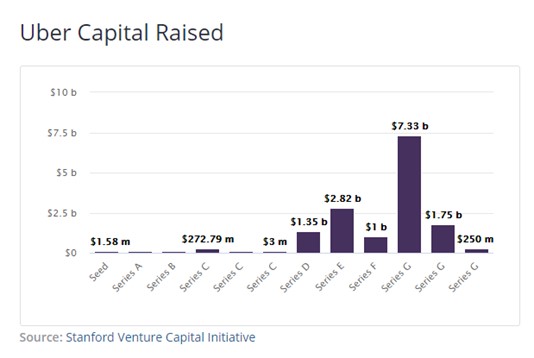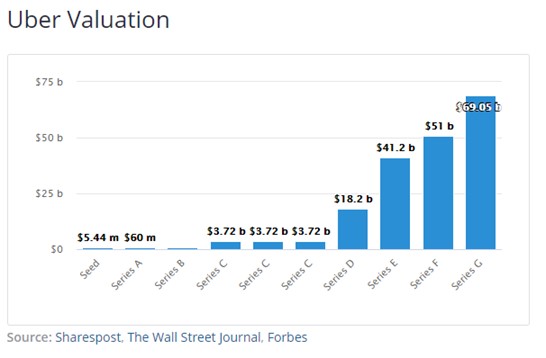Staying private for longer: The benefits of early-stage investing
Traditionally, a company would appear to have “made it” when the founders were able to ring the bell when listing in the public market via an initial public offering (IPO). Fast forward to today and we are seeing a huge change in the investment landscape with companies staying private for much longer and delaying their IPO.
The primary reason a company would look to IPO is for capital and to provide liquidity for early investors. Additional capital raised can then be used to scale and grow the business as well as bring public awareness to the company which in turn can increase customers and ultimately increase revenues. Whilst the capital and awareness are great for businesses, being a listed entity comes with huge responsibilities with companies required to disclose a lot more information about their operations and financial reporting. Not only is it very costly to be listed, but companies must also be prepared to spend a lot of time conforming to an exchange’s listing rules to be compliant with their disclosures to shareholders.
Public companies also are faced with the added pressure of the market which may cause them to focus more on short-term results rather than long-term growth. The actions of the company's management can also become increasingly scrutinised as investors constantly look for rising profits.
As such, we are seeing a profound change in the way companies are now raising money, with companies turning to the private market for funding. And why wouldn’t the market be interested when early-stage investing has proven to be extremely profitable for some investors.
In particular, the technology sector has seen a huge shift away from the public markets, tapping into private capital for funding. The abundance of private sources of capital means start-up companies can now afford to stay private for much longer.
Recently, the market has seen a huge surge in company unicorns. A unicorn is a privately held start-up company with a current valuation of US$1 billion or more and in the past five years unicorn start-ups have gone from a rare breed to the new normal. Why? Because a plethora of private funding opportunities are being presented to them – they are receiving funding from venture capital companies as well as from sovereign wealth funds, private equity funds, and superannuation funds. All investors are chasing the value creation opportunity.
If we look at Apple (NASDAQ: AAPL), the company listed in 1980 and issued 4.6 million shares at $22 per share, with a company market capitalisation at just over US$1 billion. Fast forward 30 years and the company is now worth a staggering US$2 trillion. A huge amount of value was created once the company listed on the NASDAQ.
Today, companies such as Uber, Facebook, Spotify, Stripe and Airbnb are achieving valuations of $80 billion or more as private companies. The private funding is available to enable companies to achieve this scale. The challenge for investors is how to participate in this extraordinary wealth creation before these companies IPO.
For example, Uber (NYSE: UBER) received its first seed capital in September 2010 and was able to stay private for ten years, raising US$24 billion. When Uber went public in 2019 it was valued at US$78 billion.
Investors who participated in the seed capital raise and stayed invested until the company listed, would have experienced a phenomenal return on investment.


Another company reaping the rewards of staying private is Stripe. Stripe has recently completed a $600m capital raise and is now the most valuable private company in Silicon Valley with the company now valued at US$95bn. It was founded in 2010 and its valuation has tripled in less that a year, surpassing the valuations achieved by Facebook and Uber before they went public.
Although Stripe has recently recruited new Board members and a new Chief Financial Officer, it has opted to stay private at a time when there are lot of other technology companies going public. By remaining private, Stripe can focus on its growth objectives without the worry of disclosing its revenue and profitability to public market scrutiny.
Companies who have remained private can focus on the growth of their business which can have huge rewards for early-stage investors who can capitalise on growth valuations once the company lists on an exchange. Today there are more institutions that want to invest in private companies, and changes in regulations have both made it more convenient to stay private and less convenient to go public. The reality is that the structure of the market has changed, and companies can afford to wait a lot longer to go public.
Never miss an insight
Enjoy this wire? Hit the ‘like’ button to let us know. Stay up to date with my content by hitting the ‘follow’ button below and you’ll be notified every time I post a wire. Not already a Livewire member? Sign up today to get free access to investment ideas and strategies from Australia’s leading investors.
3 topics

